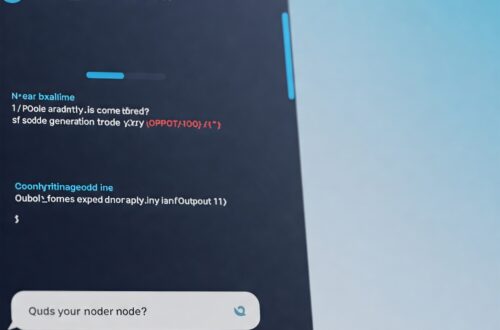The renowned AI research lab DeepMind, a part of Google, has unveiled its latest innovation: an AI system named AlphaEvolve designed to tackle mathematical and scientific problems with verifiable solutions. This new tool incorporates a novel approach to mitigate a common pitfall of even the most advanced AI models – the tendency to “hallucinate” or confidently generate incorrect information.
AlphaEvolve’s core strength lies in its integrated automatic evaluation system. Instead of simply generating answers, it employs models – DeepMind specifically highlights the use of state-of-the-art Gemini models – to generate a pool of potential solutions. Crucially, it then critiques and scores these answers for accuracy based on a user-provided mechanism for automatic assessment, essentially allowing the AI to check its own work.
While the concept of self-evaluating AI isn’t entirely new, with DeepMind themselves exploring similar techniques in specific mathematical domains previously, the company asserts that AlphaEvolve’s utilization of cutting-edge Gemini models significantly elevates its capabilities.
To leverage AlphaEvolve, users input a problem, with the option to include relevant context such as instructions, equations, code snippets, and research papers. A key requirement is the provision of a formula or method that the system can use to automatically verify the correctness of its generated solutions.
This self-evaluation mechanism inherently limits the types of problems AlphaEvolve can effectively address. It is best suited for problems in fields like computer science and system optimization, where solutions can be described algorithmically and their accuracy can be automatically assessed. Consequently, it is less adept at handling problems that require non-numerical or descriptive answers.
In benchmark testing against a curated set of approximately 50 math problems spanning various branches, DeepMind reports impressive results. AlphaEvolve was able to “rediscover” the best-known solutions a remarkable 75% of the time and even identified improved solutions in 20% of the cases.
Beyond theoretical problems, DeepMind also tested AlphaEvolve on real-world optimization challenges within Google’s infrastructure. The system reportedly generated an algorithm that continuously recovers an average of 0.7% of Google’s global compute resources. Furthermore, it proposed an optimization that could reduce the training time for Google’s powerful Gemini models by 1%.
DeepMind is careful to clarify that AlphaEvolve isn’t yet making groundbreaking scientific discoveries in the traditional sense. For instance, it identified an improvement for Google’s TPU AI accelerator chip that had already been flagged by other tools. However, the core value proposition, echoed by many AI labs, is that AlphaEvolve can significantly save valuable expert time, freeing up researchers and engineers to focus on more novel and complex challenges. DeepMind is currently developing a user interface for AlphaEvolve and plans an early access program for select academics, hinting at a potential broader release in the future.





